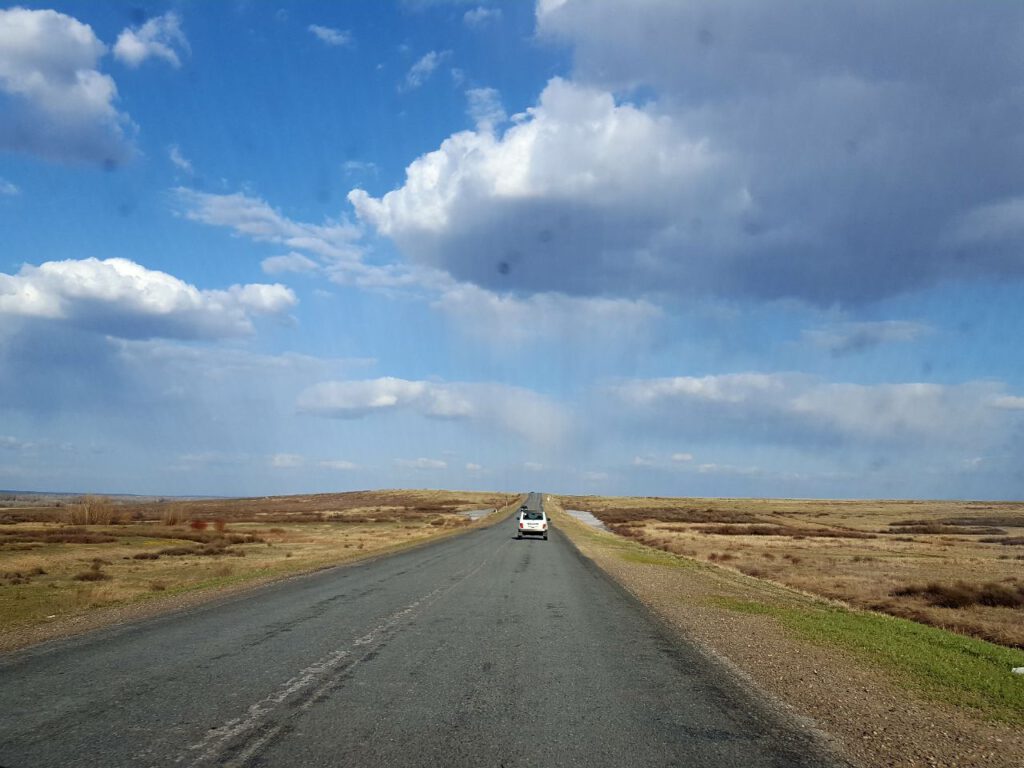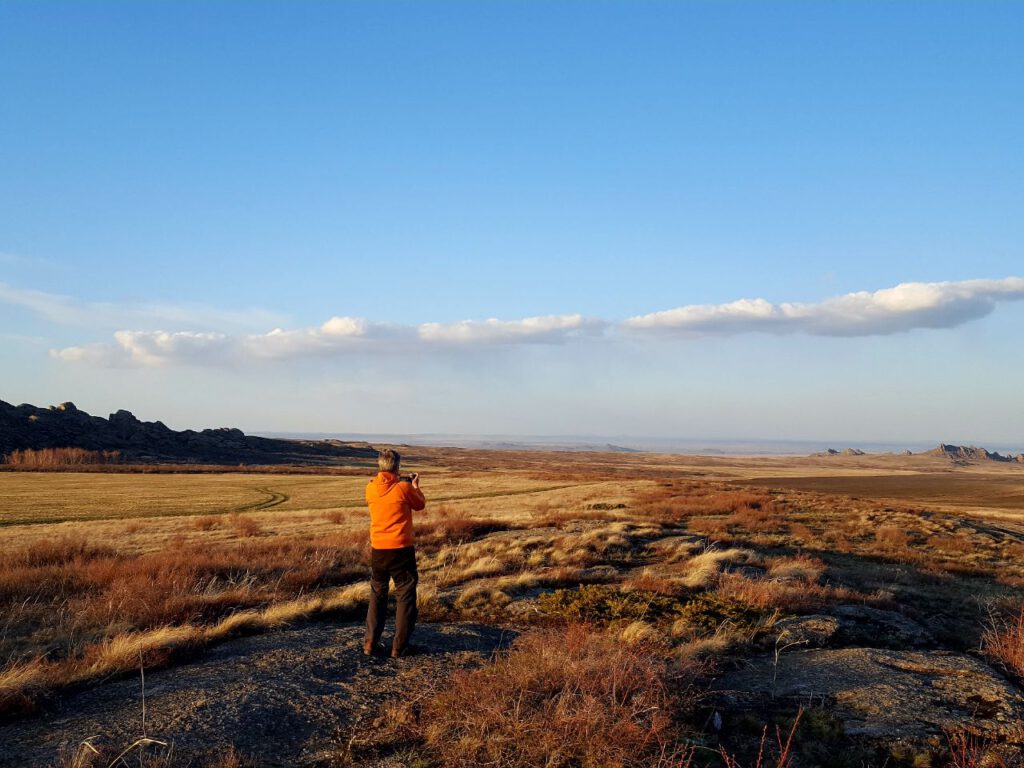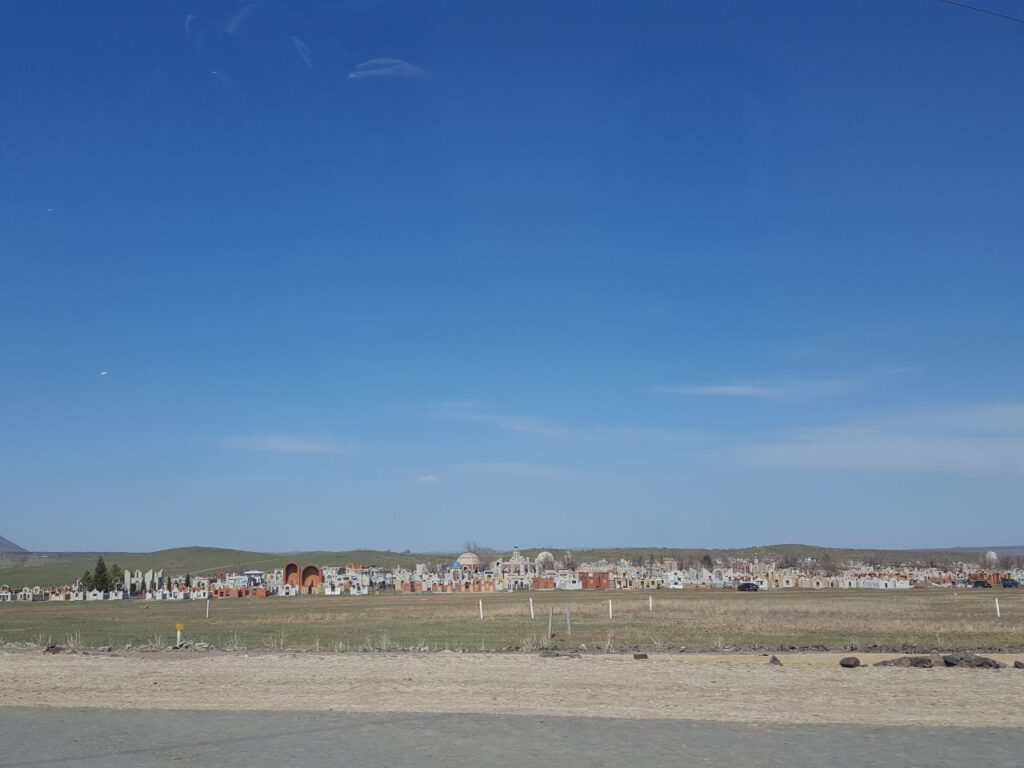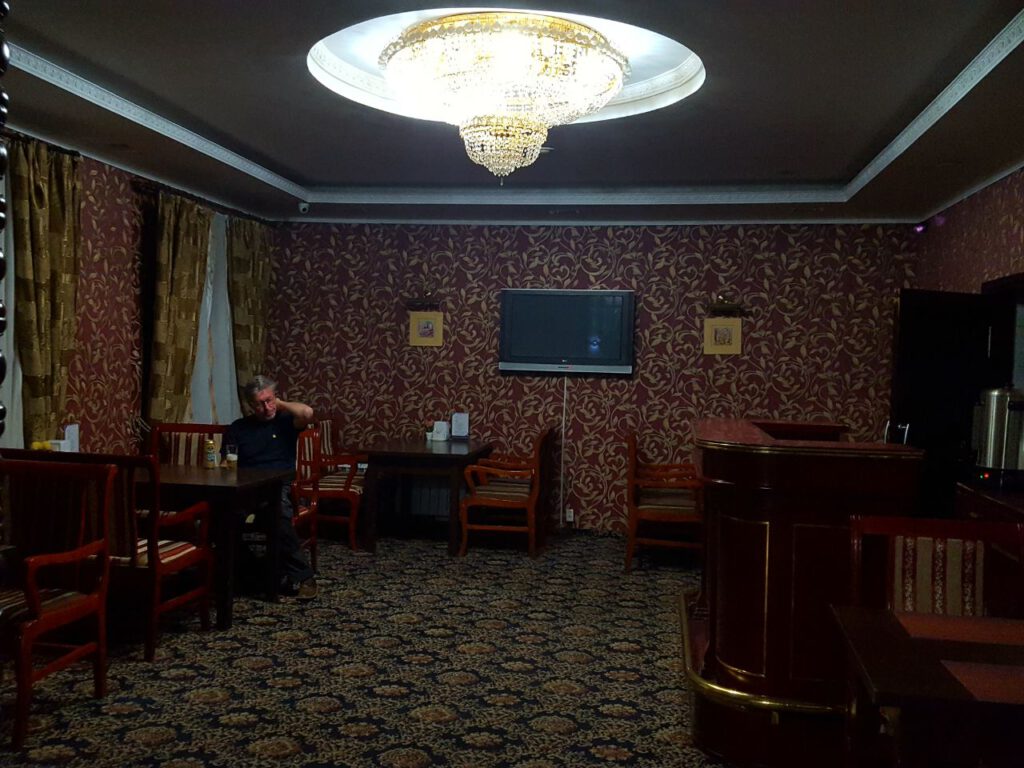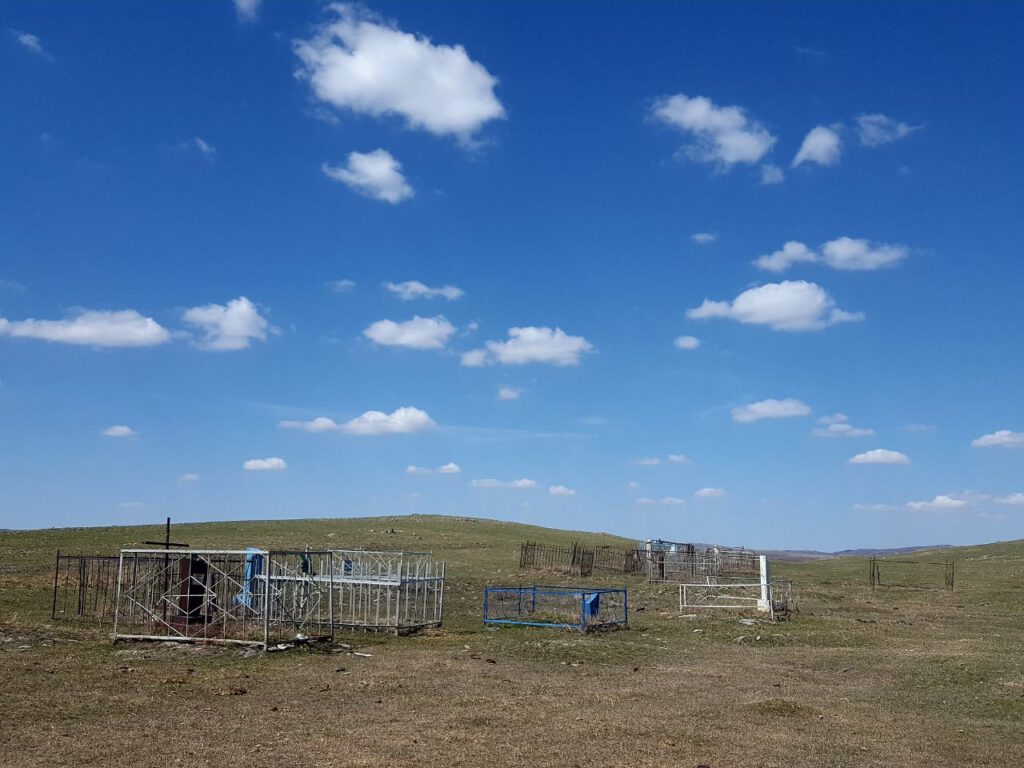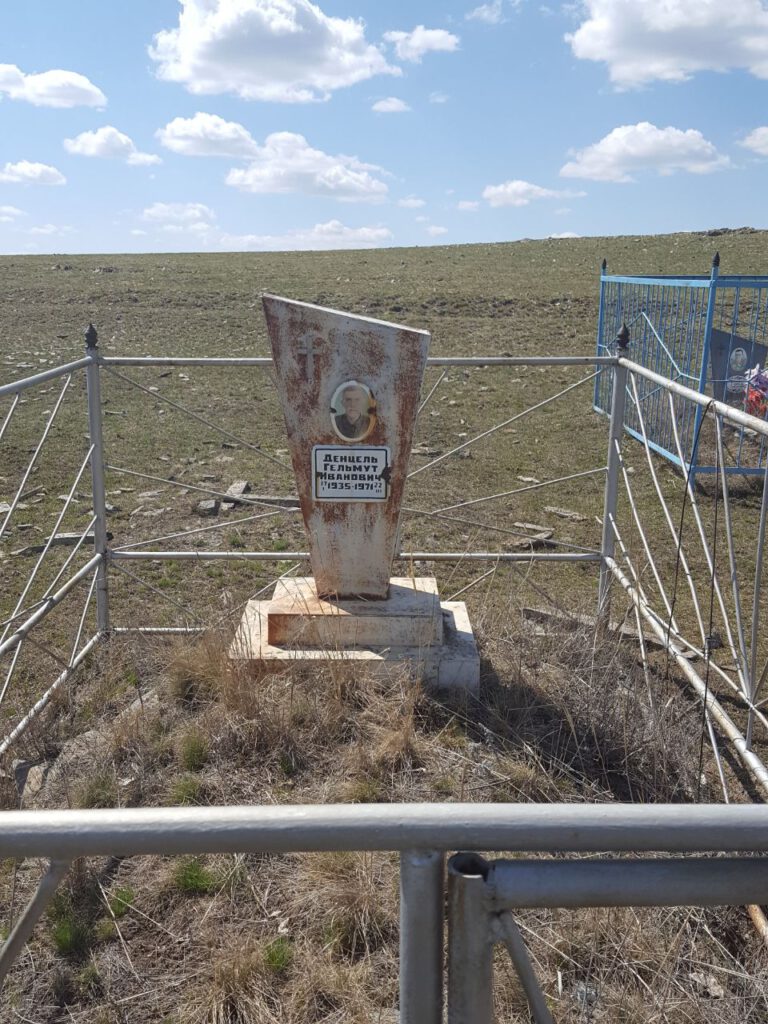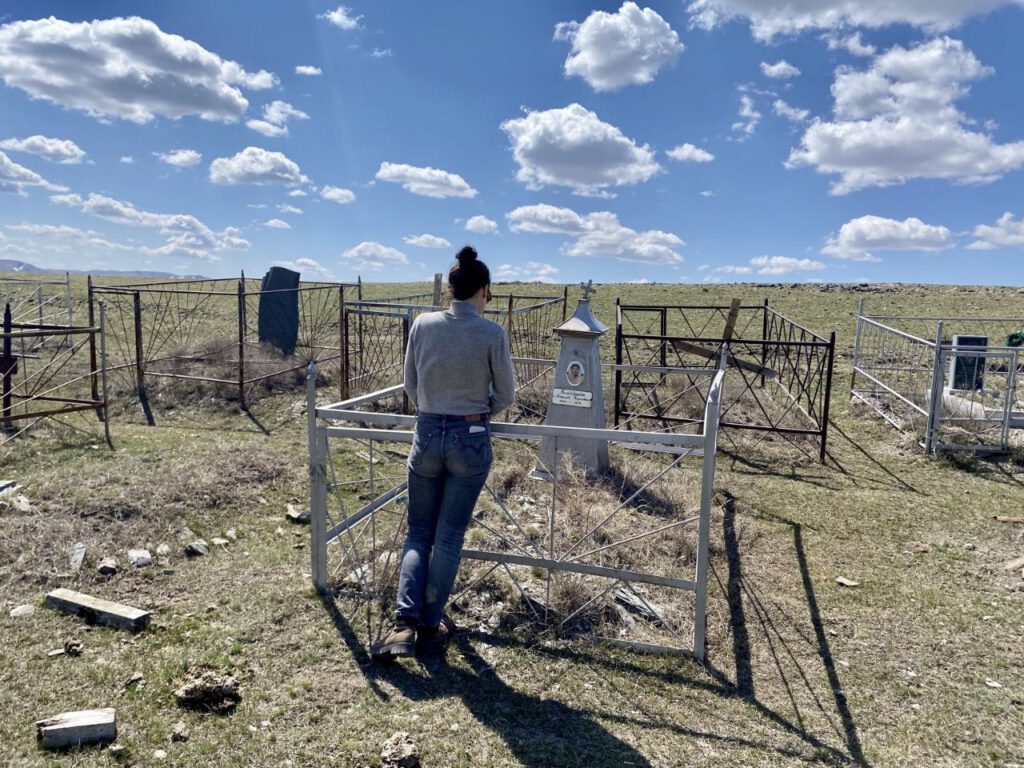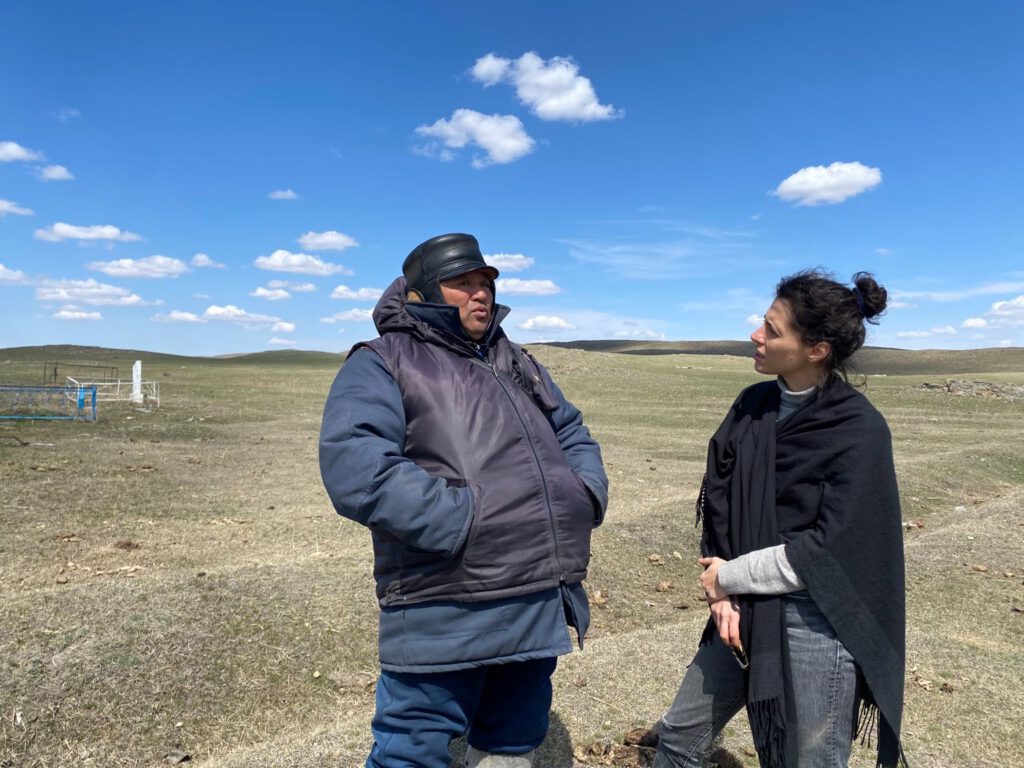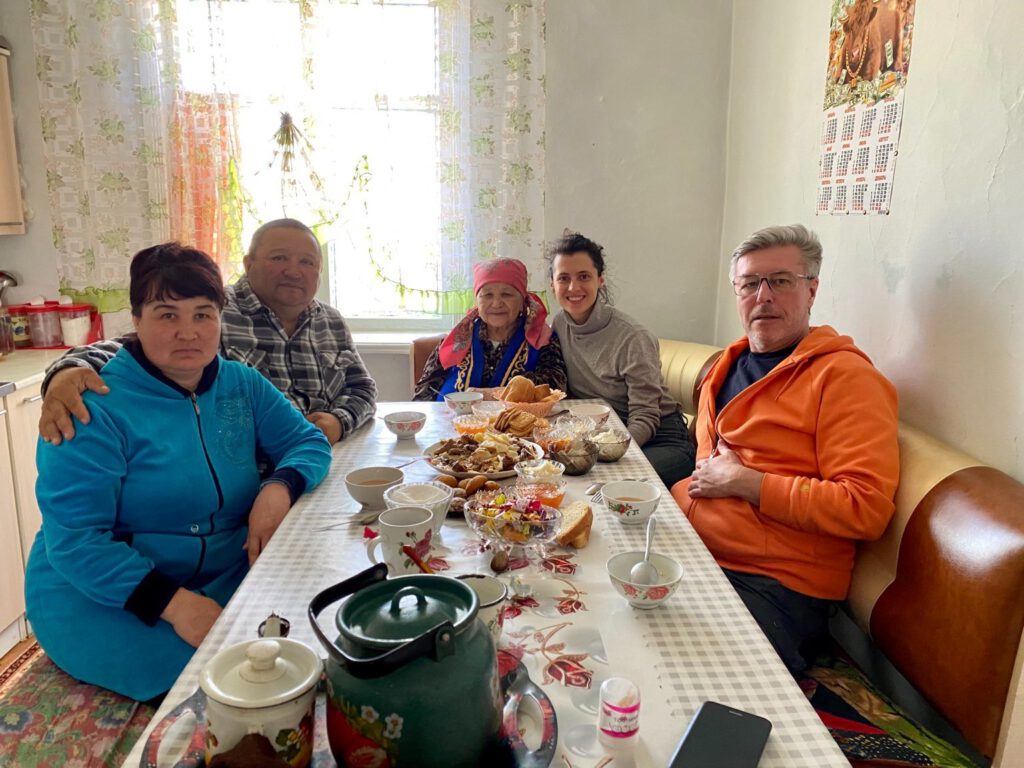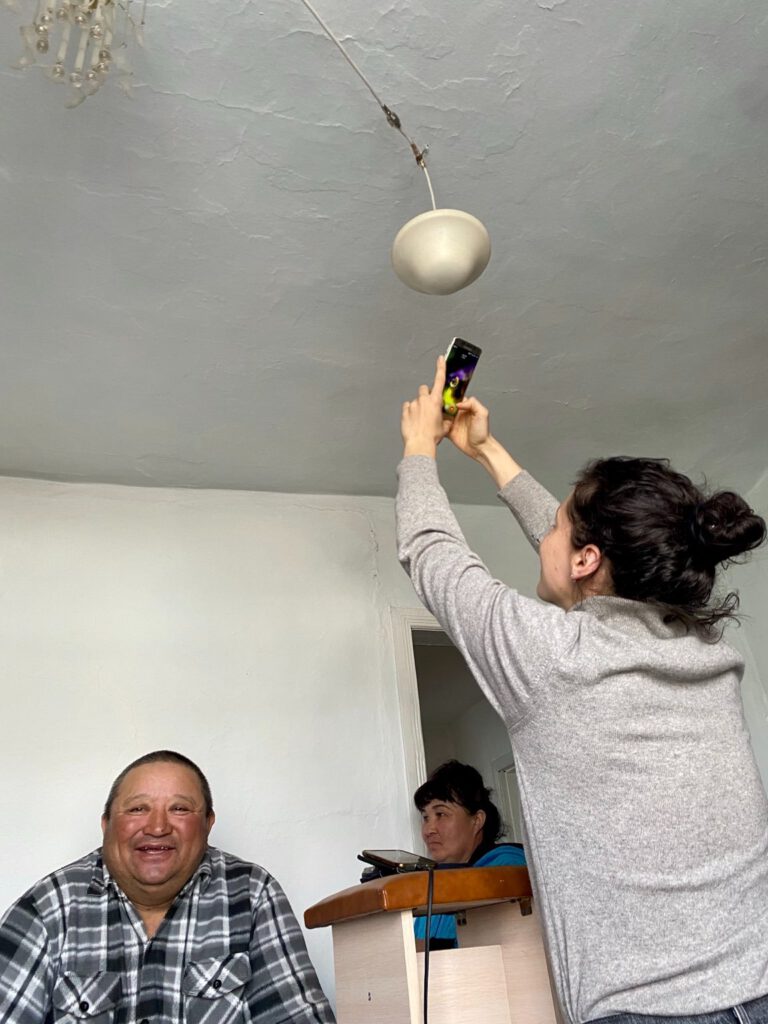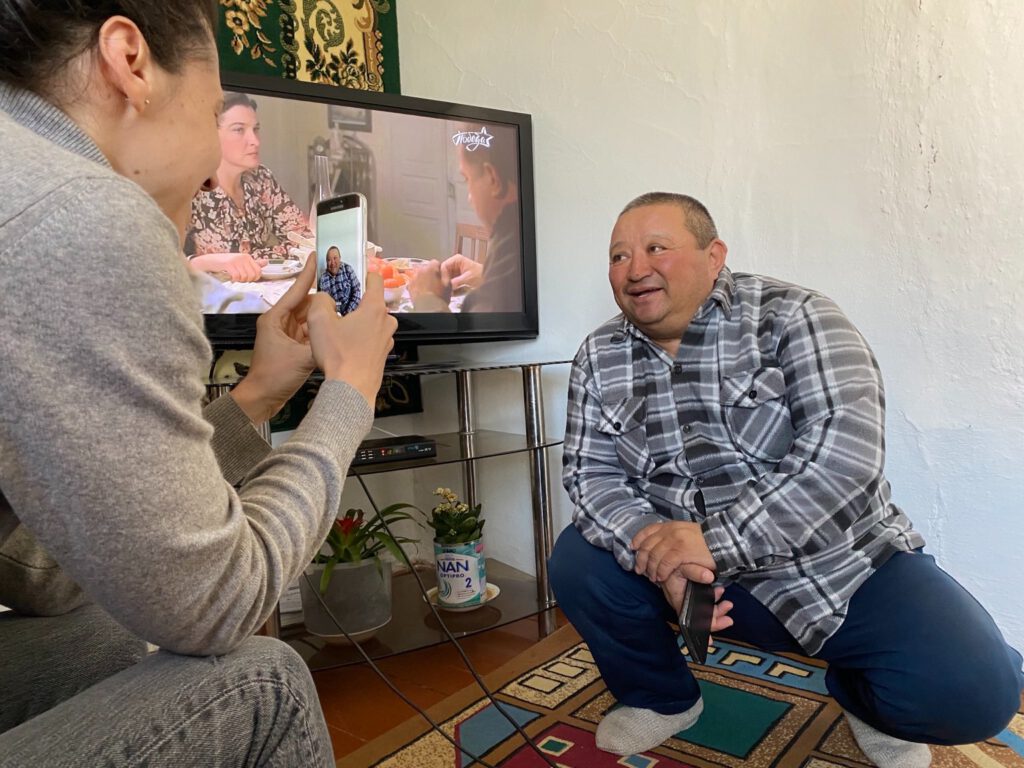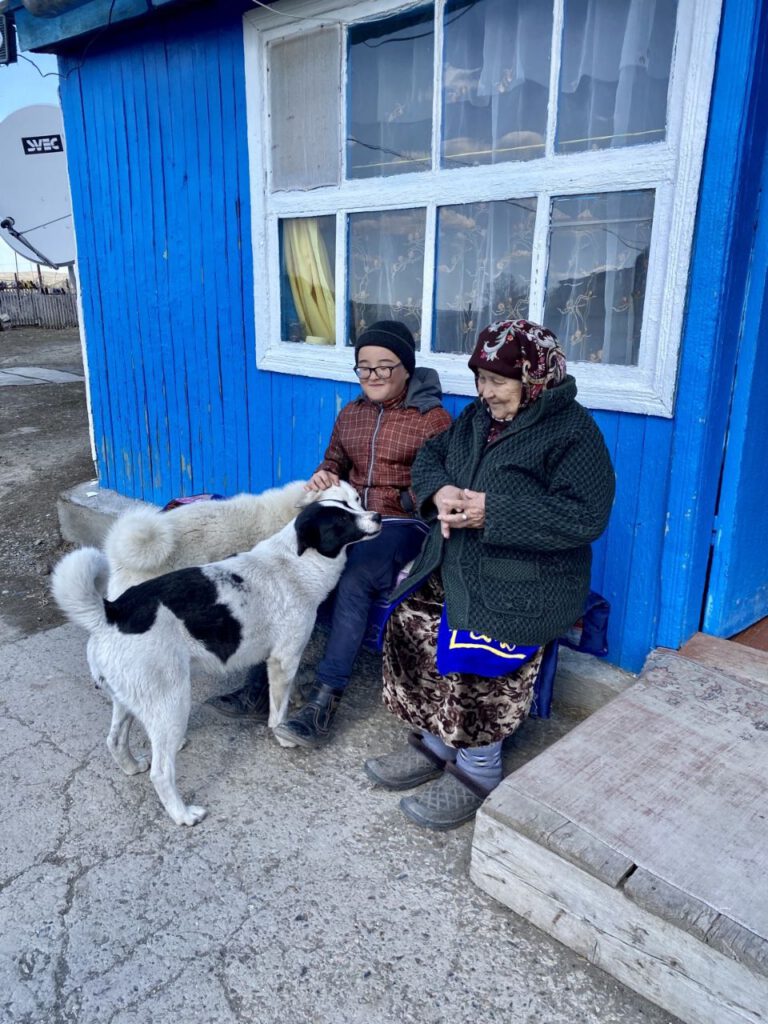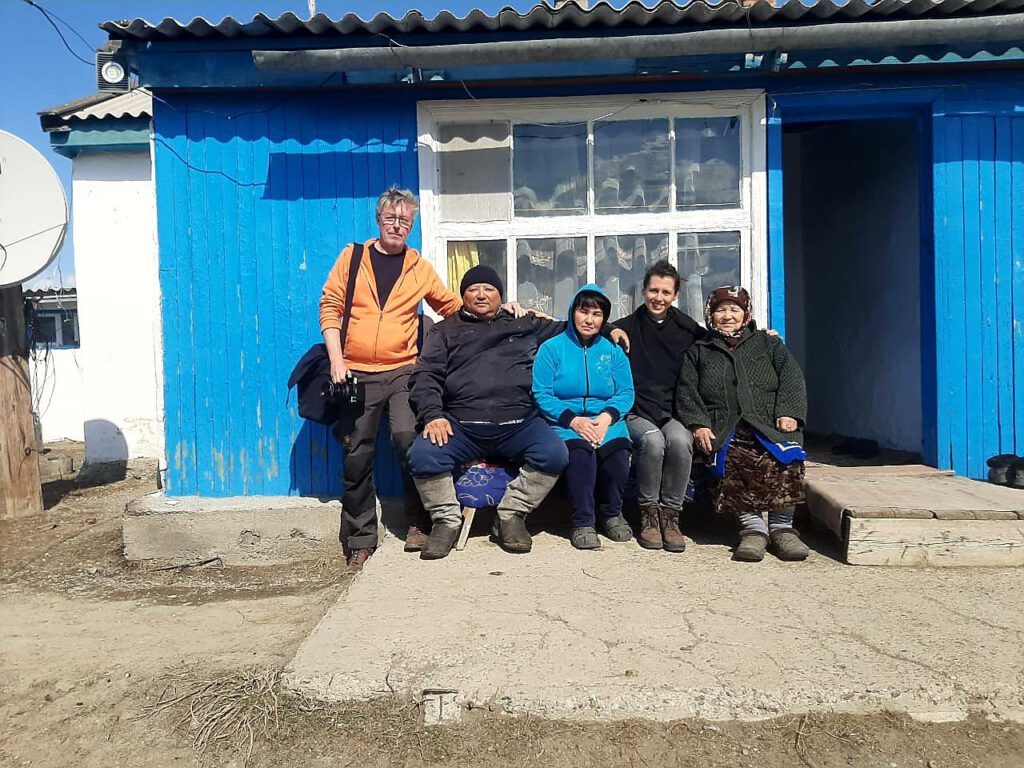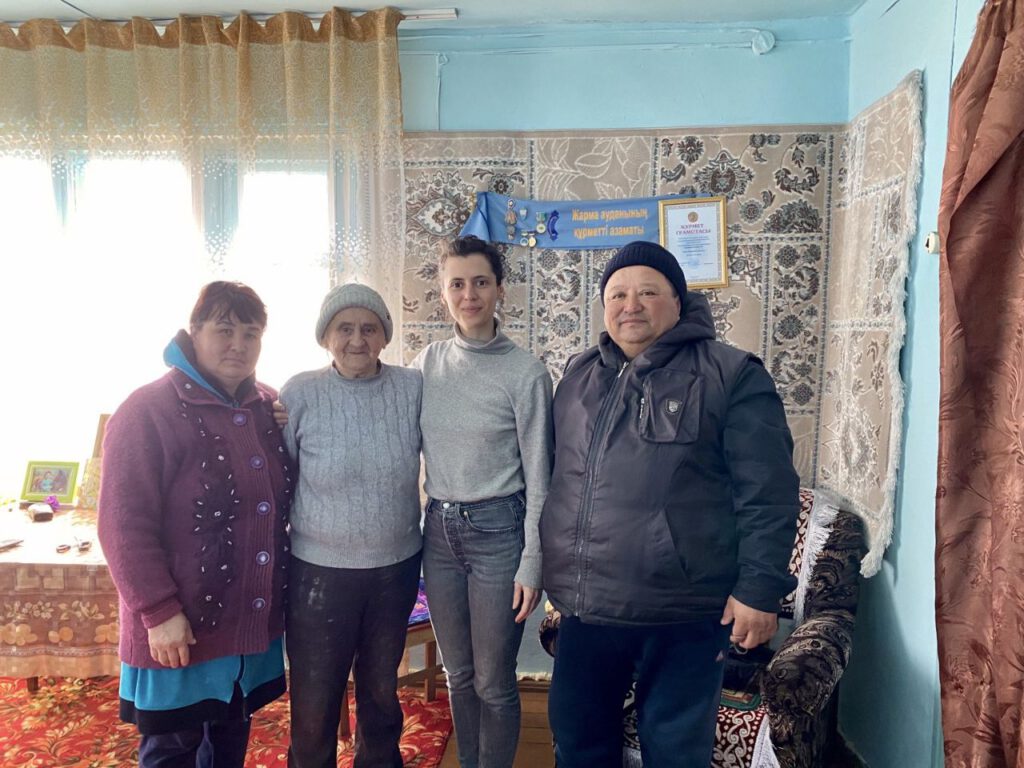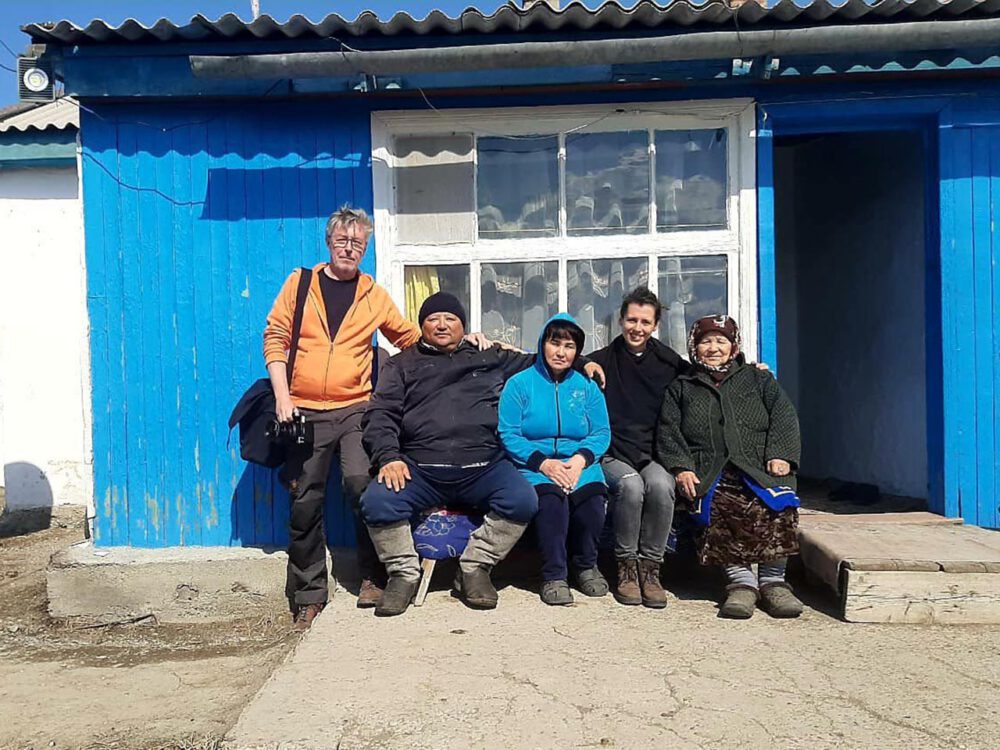In the evening we arrived in Oskemen, the capital of the East Kazakhstan region. We could not even dream of all that was to happen to us the next day. We had two destinations on the plan: my mother’s home village, not far from Oskemen (by Kazakh distance standards), and the Arkat Mountains. This rock formation had already impressed Brehm.
Over bumpy roads we reached the village of Adi, named after the partisan fighter, writer and politician Adi Sharipov. He was born in this small village, which was then called Marinovka – just like my mother. None of our family has lived there for a long time. Only my grandmother is buried in the village cemetery and I wanted to pay her a visit. There is not much left of the cemetery, but her grave is still there. The names on the other gravestones that can still be read are mostly German.
While we were walking around, I saw a man on a motorbike approaching from afar. Of course he’s from the village and wants to know what we’re doing here, I thought, and so he did. “Salem Aleikum! Zdravstvuyte!” he said, pointing out to us that the area belongs to the village. I greeted him and explained that my grandmother Mathilda Hildebrandt was buried here. Then he looked at me, put his hand to his heart and said, “Mathilda was a very good person!” I couldn’t believe that he knew her. For I only knew my grandmother from stories, she had died long before I was born and because of that the stories of her and about life in the village seemed infinitely far away, as if from a bygone century. The sudden connection to the present was overwhelming. Our new acquaintance Talgat knew her as a young boy, as well as my grandfather, mother and uncle. Immediately he invited us to his home for tea.
While Talgat’s wife set the table, I talked to his mother, who also lives with them. The 90-year-old could still remember the German neighbours who gradually left the village. She raved about the kindness of my grandmother, who ran the village shop back then. Of course, she also told anecdotes of merry get-togethers for which an occasion was always found. After the war, people were able to relax a little, she said, the need for exuberance was great. How well the majority German and Kazakh villagers got along with each other, the old woman enthused. She listed names, asked how one or the other had fared in Germany and whether the old people were still alive. Unfortunately, I could hardly give her any information, as I only knew these people from stories of days gone by. I probably never felt so much like I was in a film in my life as I did that day.
In Marinovka, Volker also enjoyed a Beshbarmak “for the advanced”: with homemade “Kazy” (horse sausage) and plump pieces of fat. Even for his now trained palate, this was a challenge. By contrast, the fresh “Kurt”, a salty and crumbly curd cheese, seemed much more digestible. In any case, Volker stuck to the bowls filled with Kurt when the hosts asked him several times to eat more.
Before we continued our journey, we paid a visit to the former village teacher Elena Josefova Kwatsch. The 80-year-old still vividly remembered my mother, whom she taught until the 7th grade. Here too, of course, a few bowls of tea had to be drunk, stories told, “speak German” and current German politics briefly discussed. Angela Merkel certainly has some fans in Marinovka. Finally, Elena Josefova’s husband grabbed his head and spoke: “Life is short, guys. It’s damn short!”
Volker and I could hardly believe how this briefly planned visit to the cemetery turned out. We would have liked to stay longer in Marinovka, but time was pressing… after all, the Arkat Mountains were waiting for us. Once there, the next impressions hit us – this time of an aesthetic nature in the truest sense of the word. The rocks and the surrounding landscape inspired us no less than Brehm had done at the time.
And while Volker disappeared somewhere between the rocks with his camera, I saw a rider coming in our direction. I went to the car to possibly give information about us again. The young Kazakh told me that his farm was nearby and that he was surprised to see a car here. I told him that we had come from Germany and were doing an art project here. “Come and visit, my house is just up ahead,” he said. If we hadn’t still had a few hundred kilometres to go…
